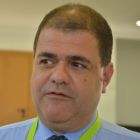
ETHNIKO KENTRO EREVNAS KAI
TECHNOLOGIKIS ANAPTYXIS (CERTH)
CERTH was founded in 2000 and is one of the leading research centres in Greece. CERTH consists of five institutes specializing in the fields of Energy, Environment, Information & Communication, Transportation & Sustainable Mobility and Agro-biotechnology. The development strategy of CERTH is based on establishing strategic collaborations with Industry and developing strong links with Research Centres and Universities within the European Research Area (ERA) and contributing to the training of young scientists and engineers in state-of-the- art technologies.
Aerosol and Particle Technology Laboratory (APTL)
CERTH participates in the RECODE project with the Aerosol and Particle Technology Laboratory. APTL was established in 1996 with main objective to conduct basic and applied research as well as to develop new technological products in the areas of clean transport, clean energy and in-situ process monitoring. APTL performs research in emission control technologies for mobile and stationary sources incl. catalytic nanoparticle synthesis, coating and functionalization of porous materials, multifunctional compact monolithic reactors and filter and membrane systems as well as solar hydrogen technologies and sensor and measurement technologies. APTL also maintains a strong computational team on multiphysics, multiscale simulation of thermochemical engineering processes.
Team role and expertise in the project
CERTH will develop and optimize, via both experimental and simulation analyses, the advanced nanoCaCO3 precipitation/NH4Cl crystallization unit together with powder removal system. An optimization of the membrane and operating parameters in order to obtain the required nanoparticle morphology and size distribution will form a crucial part of the work. CERTH will lead the simulation and modelling activities of the RECODE project. This will include development of appropriate detailed models for single unit components and their integration into a system analysis tool. In a second stage, detailed process modeling will be conducted in order to investigate the dynamic response of the complete system. The developed model will incorporate data from plant operation and the simulation results of the best case scenario will be used as input data for the techno-economic and environmental assessments
